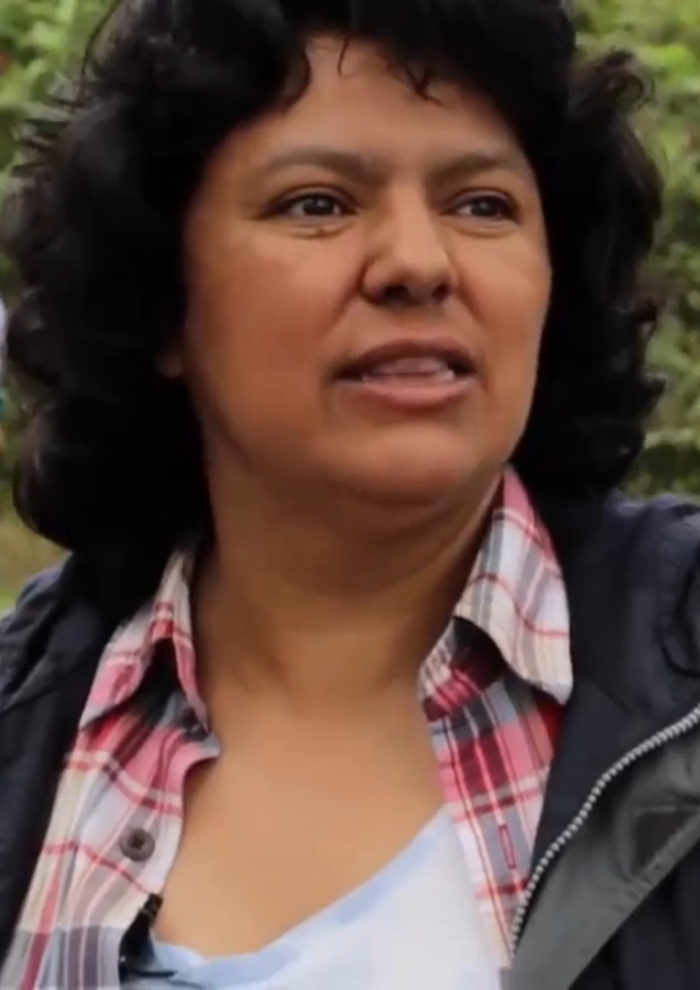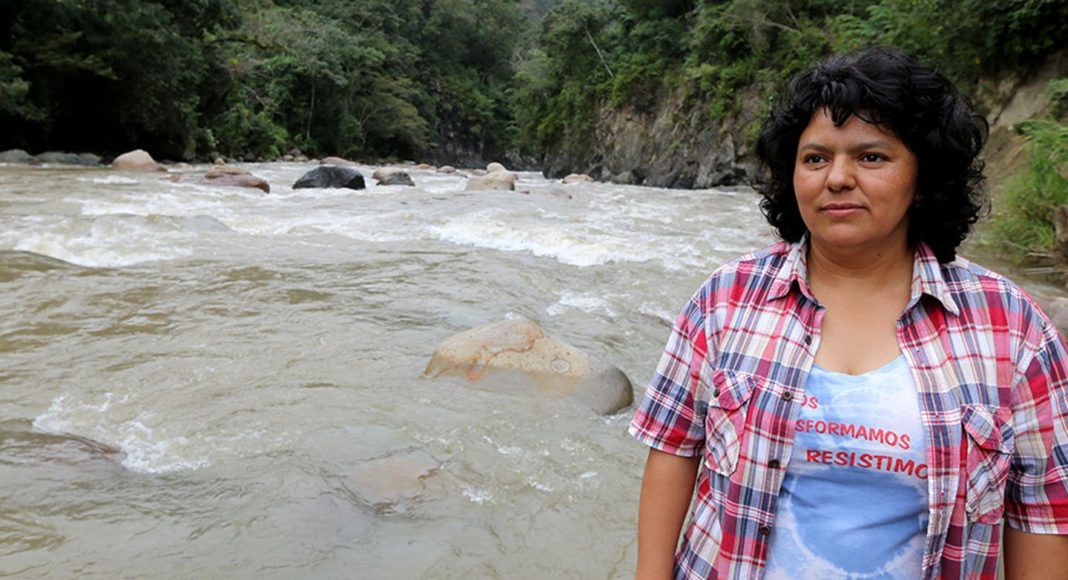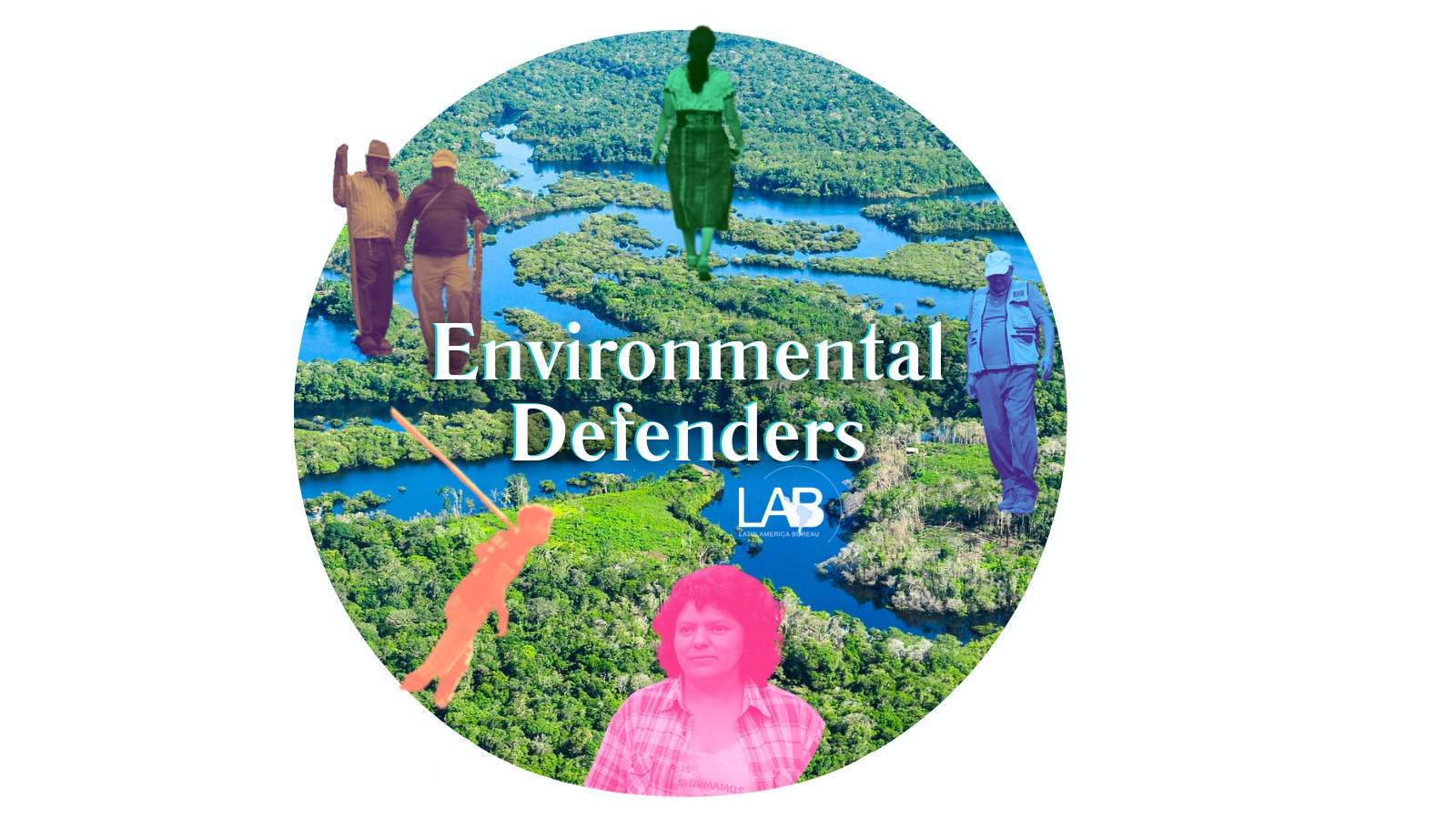Little over a week after she had received threats for opposing a hydroelectric dam project, news broke of the murder of Honduran environmental and indigenous rights activist Berta Cáceres. Her killing sparked international outrage and violent clashes in Honduras, while shining a spotlight on the lack of protection offered to environmental defenders in Latin America, as well as impunity surrounding crimes committed against them.
During her life, Cáceres stood up against powerful landowners, the world’s largest dam builder and an army of private security guards in Honduras to defend the rights of her fellow Lenca people and the environment. Having grown up amid the violence that plagued Central America through the 1980s, Cáceres became a student activist before co-founding the National Council of Popular and Indigenous Organizations of Honduras (COPINH). In 2012, LAB published an interview with her about this work.

Her biggest challenge came when she was approached by members of the Rio Blanco community who reported machinery arriving in their town and an act of aggression against the river, a place of spiritual importance for Lenca people. This signified an attack against the community, as well as its autonomy. In response, Cáceres coordinated a campaign against the construction of the Agua Zarca Dam. From filing formal complaints against authorities to leading a peaceful protest against its establishment to setting up a high-profile road blockade in 2013, Cáceres tirelessly used a range of strategies to defend the river and, perhaps more importantly, what it meant for the Lenca people. Eventually, construction on the dam was halted.
In 2015, Cáceres was awarded the Goldman Environmental Prize for her efforts, achieving some international recognition, but continued to receive threats to her life. Despite, or rather because of her courageous stance and continued work to defend human and environmental rights in the face of such risks, on March 3, 2016, armed gunmen stormed Cáceres’ home, shooting her dead.
According to the 2017 report of the International Expert Advisory Panel (Grupo Asesor Internacional de Personas Expertas – GAIPE), her murder was probably orchestrated by a network of senior business executives and Honduran officials who wanted to silence her efforts to stop the Agua Zarca dam’s construction.
Since then, some efforts have been made to bring those responsible for her death to justice. In July of last year, a former US-trained Honduran army intelligence officer who was the former executive director of the company constructing the dam was convicted as an intellectual author of Cáceres’ murder. However, reports suggest only a fraction of those involved have been investigated.
In a series of nine episodes lasting around 40 minutes each, Blood River explores Cáceres’ life and murder, as well as the investigations and judicial proceedings that have followed. It is available to listen to on Apple Music, Spotify and other platforms.
Part 7: ‘Berta Became Millions’
And a follow-up with latest developments:


